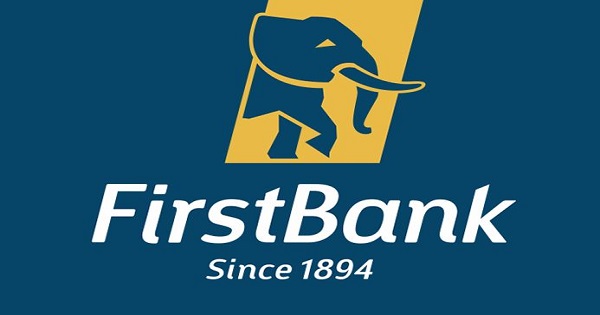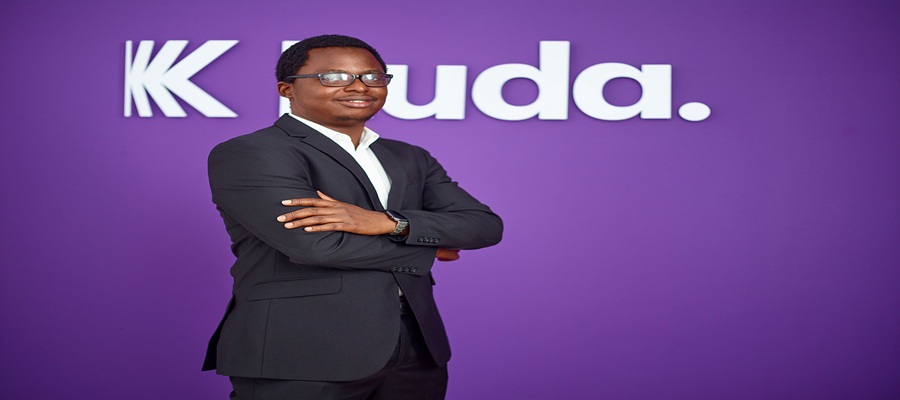E-Financial
How FirstBank is Making Customers Stay-Connected Through Its e-Channels

Folarin is a smart entrepreneur who is in touch with technological advancement and the digital age. He has different apps on his mobile phone which he uses to organise both his business and private lives. He has a food app which he uses to order for his breakfast and lunch, he has another one that takes care of his love for music and another which he uses to manage his transactions online without stepping into a bank. He tells me, his bank is forward looking and futuristic enough to make banking easy for him and his clients.
“I have been banking with FirstBank since I was in school as an undergraduate, says Folarin. My mum opened the account for me. That was where she sent my monthly allowance. After school, I didn’t close the account I simply continued with the tradition.”
It was not difficult for Folarin to decide he would open his corporate account with FirstBank when he started his business a few years ago. He says the ease at which he gets his transactions done on FirstBank’s application, FirstMobile, endears him to the bank.
“I can do many transactions with FirstMobile. I can do bank transfers, check my balance, receive alerts on any transaction I do. There is also a beneficiary section that enables me save the account numbers of people close to me for future transactions.”
The FirstMobile App has over the years offered succour to FirstBank customers.
Folake Ani-Mumuney, Group Head, Marketing & Corporate Communications, FirstBank says “FirstBank wanted a truly branchless experience for its customers and thus enhanced the app to deliver an instant, remote, self-enrolment feature. Hence, in 2015, onboarding process on FirstMobile was improved with self-service feature; empowering customers to remotely complete their onboarding process on the App without visiting a branch.”
In addition, Chuma Ezirim, Group Head, e-Business, First Bank of Nigeria Limited said the soft token was also launched to satisfy the needs of customers who did not want to carry the hard token about. “It serves the same purpose as the hard token but provides the advantage of convenience and mobility as it is installed in the customer’s mobile phone,” he noted.
Another interesting digital service platform by FirstBank is the FirstBillsPay, a biller aggregator platform. It aggregates various billers through a secured connection to the bank, to avail its customers a single payment point for all bills from their accounts.
“In addition to FirstMobile and FirstBillsPay is FirstCheckOut. This is an additional payment option that can be integrated to merchant website that will allow customers pay bills directly from their bank accounts as a substitute to cards. We also have the 894 USSD Quick Banking service as part of our financial inclusion drive. The *894# USSD service makes banking services available across all GSM networks, on any type of device, anywhere and at any time; this gives it a unique selling point,” explained Ezirim.
There are also the Emerging Channels (USSD Collections, mCash, MVISA). These platforms are to ensure FirstBank gets its customers connected in a seamless way in the digital driven age.
“Our FirstBank mVisa is an innovative mobile payment solution that allows consumers to pay for goods and services via FirstMobile by scanning a QR code using a smart phone or by dialing a USSD number on a phone. Payment goes directly from the consumer’s account into the merchant’s account and both parties get real-time notification. The USSD Collections allow merchants to receive payments from customers simply by using 894 USSD string for FirstBank customers. The focus segments for USSD Collections are Manufacturing/FMCGs/ Value Chain Businesses, Petrol Stations, Network Marketing Companies, Transporting Companies, Churches, Schools and others,” says Ezirim.
Furthermore, FirstBank Agent banking was launched towards the end of 2017. The bank recruited Firstmonie Agents and empowered them to carry out basic financial services within their vicinity. Firstmonie Agents are literally human extensions of almost all the banking activities, they are strategically positioned within communities with large population of unbanked and underbanked individuals. With the large network of Firstmonie Agents spread across the length and breadth of the country, financial inclusion is significantly promoted by FirstBank.
Now, the new kid on the block for FirstBank is the chat banking on WhatsApp. With this, FirstBank’s customers can leverage on the real-time messaging capabilities of the WhatsApp Business solution to check their account balances as well as perform simple banking queries.
“Customers’ expectations are constantly changing and it’s our duty as a customer focused bank to ensure that our customers are provided with the means to carry out banking services through any channel they desire,” says Ezirim. “We are constantly seeking new ways and opportunities to meet customers at their preferred touch points and we understand our customers are actively engaged on WhatsApp.”
With FirstBank chatbanking on WhatsApp, it is not just about staying connected with friends and loved ones, but also keeping in touch with FirstBank anytime and anywhere you are.
E-Financial
UBA launches instant digital platform for seamless account opening across Africa, diaspora

United Bank for Africa (UBA) Plc, Africa’s leading financial institution, on Tuesday unveiled a groundbreaking instant account opening platform, revolutionising banking access for millions across the continent and diaspora communities worldwide.

UBA
The fully digital innovation, accessible at ubagroup.com, empowers prospective customers to complete account onboarding online in minutes, bypassing paperwork, branch visits, and lengthy processes that have long hindered financial inclusion. Supporting Naira and Diaspora accounts with multi-language options, the platform operates seamlessly on computers, tablets, and smartphones, catering to UBA’s diverse pan-African footprint spanning 20 countries, the UK, US, France, and UAE.
Shamsideen Fashola, Group Head of Retail and Digital Banking, described the launch as a pivotal step in democratising finance. “At UBA, we are committed to redefining the customer experience through innovation and simplicity,” Fashola said. “This fully digital solution underscores our belief that banking should be accessible, secure, and truly borderless.”
The seven-step process is intuitive: customers select “Open a Savings Account,” input their Bank Verification Number (BVN), undergo facial verification, confirm an OTP, update details, upload documents, add a digital signature, and receive an instant account number. This bridges traditional banking rigour with fintech speed, incorporating digital KYC while upholding stringent security.
Built with compliance at its core, the platform adheres to Nigeria’s Data Protection Act (NDPA) and Europe’s GDPR, safeguarding user privacy amid cross-border operations. Unlike conventional methods requiring physical biometrics, it enables immediate enrolment in UBA’s digital channels, blending convenience with regulatory depth.
Alero Ladipo, Group Head of Brand, Marketing, and Corporate Communications, highlighted customer-centric design. “Today’s customers expect speed, convenience, and compliance without compromise,” Ladipo stated. “We have blended industry-leading digital onboarding with robust standards for a seamless experience matching global best practices.”
The move reinforces UBA’s dominance in technology-driven inclusion, serving over 50 million customers with 30,000 employees and pioneering retail, commercial, and institutional services. Analysts view it as a strategic edge over fintech rivals, accelerating Africa’s digital economy amid rising diaspora remittances and intra-continental trade.
As Nigeria and Africa push financial digitisation, UBA’s platform positions the bank to capture untapped markets, fostering economic growth through barrier-free banking
E-Financial
Kuda MFB Secures National Microfinance Banking Licence, Sets Stage for Nationwide Growth

Kuda Microfinance Bank (Kuda MFB) has received a license from the Central Bank of Nigeria (CBN) to operate as a National Microfinance Bank, which means that it can now have a physical presence across Nigeria.

Musty Mustapha, MD/CEO of Kuda MFB
With the Unit Microfinance Bank licence it held until December 2025, Kuda MFB’s physical operations were limited to a specific location. The national licence removes those geographic restrictions, allowing the bank to open customer experience centres in multiple parts of the country. It also regularises Kuda MFB’s licensing status in line with the Central Bank’s framework for microfinance banks.
According to the bank, the national licence is about regulatory alignment and operational flexibility rather than a shift away from its digital-first model, so it will continue to lead with digital banking services, offering Nigerians the convenience of making transfers and payments, saving, and accessing instant credit through the Kuda app.
Musty Mustapha, MD/CEO of Kuda MFB, said, “Securing a national microfinance banking licence is an important step for us as a regulated institution. It strengthens our relationship with the Central Bank and affirms our commitment to operating at the highest standards of compliance as we scale. While we remain digital at our core, this licence gives us the flexibility to create more physical touchpoints where customers want in-person support or engagement, allowing us to serve Nigerians across the country in whichever ways are most convenient for them.”
Subject to regulatory approval, Kuda MFB plans to open more experience centres designed for customer support and community engagement, in the style of its existing experience centre in Yaba, Lagos, where customers and the general public can speak directly with the Kuda team to get help and learn about the microfinance bank’s products and services.
Kuda MFB’s national licence does not change its existing product offerings or transaction capabilities, but it provides the regulatory backing for a nationwide presence.
E-Financial
NDIC Seeks EFCC’s Support to Trace, Recover Assets of Failed Banks

Nigeria Deposit Insurance Corporation (NDIC) and the Economic and Financial Crimes Commission (EFCC) have agreed to strengthen collaboration to enhance the investigation and prosecution of offences that lead to bank failures, while also improving the recovery of assets and debts of failed banks.

Thompson Oludare Sunday, managing director and chief executive of the NDIC, made this known during a courtesy visit by the Corporation’s management team to Olanipekun Olukoyede, executive chairman of the EFCC, at the Commission’s headquarters in Abuja.
In a statement issued on Sunday by the NDIC’s Hawwau Gambo, head of Communication and Public Affairs, Sunday said robust partnership with the EFCC is critical to the effective liquidation of failed banks, a process that involves asset realisation and debt recovery, with proceeds used to settle uninsured deposits.
He noted that cases of asset stripping and concealment require coordinated efforts, particularly in asset tracing, recovery and enforcement, adding that the EFCC’s expertise is vital in achieving these objectives.
Sunday also identified banking fraud investigations and the prosecution of individuals whose actions contribute to bank collapses as key areas where both institutions can further strengthen their cooperation.
He stressed that NDIC plays a vital role in maintaining financial system stability through the execution of its four statutory mandates in deposit guarantee, bank supervision, distress resolution and bank liquidation.
According to him, the Corporation’s overarching goal is to safeguard depositors’ funds, ensure prompt compensation when banks fail, and sustain public confidence in the financial system.
He also observed that both institutions share common values of integrity, professionalism and accountability, describing the visit as a step towards reinforcing institutional partnership, especially in areas where EFCC’s investigative and prosecutorial capacity is essential to NDIC’s mandate.
“We aim to further strengthen our collaboration, deepen institutional synergy and explore additional avenues for mutual support in the pursuit of national financial system stability.
“The EFCC has been our partner and we want this to continue. We look forward to an expanded and more impactful partnership between our two esteemed institutions.
“Your experience has and will continue to greatly enhance our recovery efforts. Additionally, we have that strategic responsibility for prosecuting individuals whose actions contribute to the failure of banks. We therefore seek closer collaboration with the Commission in this critical area”
Responding, the EFCC boss, Olukoyede, reiterated the Commission’s commitment to its longstanding working relationship with the NDIC in tackling financial crimes within the banking sector.
He acknowledged the history of cooperation between the two agencies, particularly in investigations and capacity development related to banking operations.
Olukoyede also briefed the delegation on key departments within the EFCC, including the Bank Fraud Section, which handles matters related to the NDIC.
He encouraged the Corporation to submit any outstanding cases for prompt assessment, noting that this would enhance tracking, accountability and case resolution.
The EFCC Chairman further highlighted the role of the Commission’s Fraud Risk Assessment and Control Department, which focuses on proactive monitoring, compliance, sound risk management and internal controls in both public and private sector institutions.
He described these efforts as part of the EFCC’s broader mandate to protect and strengthen the Nigerian economy.
Olukoyede assured the NDIC of the EFCC’s continued support in deepening institutional synergy to combat financial crimes, improve asset recovery, and ensure that offenders who undermine the banking sector are brought to justice.

 E-Financial2 days ago
E-Financial2 days agoCBN Upgrades Licences of Opay, Moniepoint, Kuda, Palmpay, Paga to National Status
- E-Financial2 days ago
Nigeria’s 9 Top FinTech Firms Valued at $10.6Bn in January 2026

 News2 days ago
News2 days agoTech Executives Double Down on AI, Talent and Adaptive Strategies to Lead in the Intelligence Age

 E-Financial2 days ago
E-Financial2 days agoNIBBS to Boost Financial Inclusion with Offline Payment Solutions

 News2 days ago
News2 days agoDHQ Indicts Brigadier General Abubakar Sadiq, 15 Others in Alleged Coup Plot againt Tinubu

 E-Business2 days ago
E-Business2 days agoFirm Identifies AI as Common Denominator in Entertainment Industry’s 2026 Security Threats

 E-Financial1 day ago
E-Financial1 day agoPayPal Goes Live in Nigeria through Paga

 General News2 days ago
General News2 days agoWEBINAR: Techeconomy Business Series Hosts Experts from MTN, Interswitch, BusinessPlus, others this Wednesday















